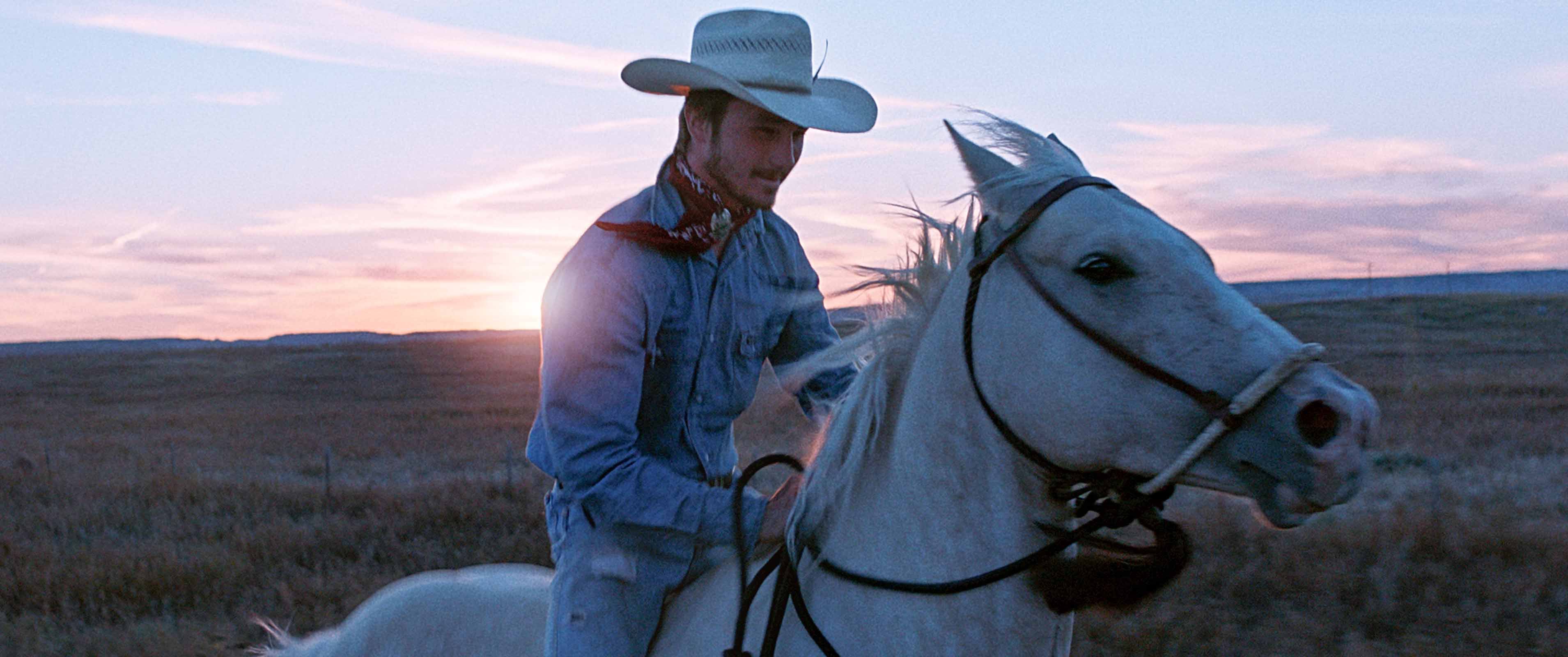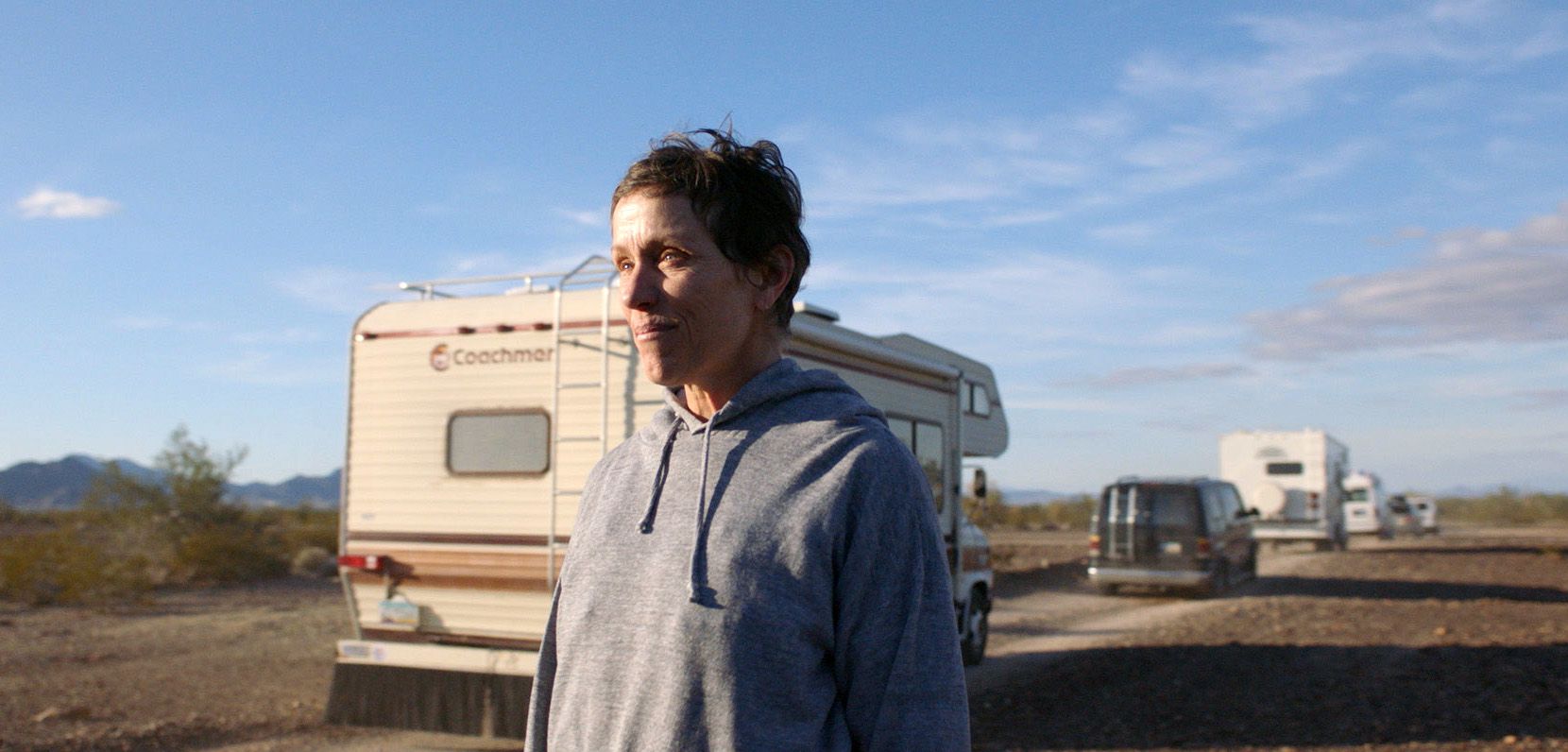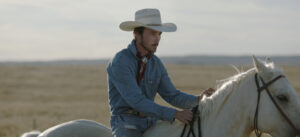Choose Your Collaborators and Projects Mindfully
One essential piece of advice that Zhao circles back to multiple times is that, “You have to surround yourself with the right people, your core people.” This is vital for having a sustainable career and can be especially important as a female director. But, if you surround yourself with good people, she advises, “then they will be there to protect you. I’ve heard of directors who’ve chosen the wrong core people and it could be terrible, so protect yourself at all costs.” This, however, is not always easy, especially earlier in one’s career, when it can feel like you must say yes to every opportunity for fear of not having another chance. Zhao acknowledges that, “Someone else who didn’t look like me might feel differently.”
Zhao believes that joining projects or collaborators that are not aligned with who you are can be harmful and that, when faced with those opportunities, “You have to really stop for a second and go, ‘What do I really want to do? And that’s not just being a woman, or being a woman of color. ‘What do I as a human being want to do?’ And that might not fit into the trendy thing at the moment. But then you will be eventually seen as an individual.”
Once you have landed on a project with collaborators you authentically connect with, Zhao believes in casting your crew the same way you cast your actors. “You have to hand select them well in this type of filmmaking,” she asserts. ”You have to make sure the leaders have the same values as you and your producers. Start with the producer. It trickles down. For each department, you have to hire the right department head who understands why you made that effort to hire them. And then when they hire someone in their department, they have to have the same mentality.” While having a handpicked crew is always important for Zhao, it is often especially necessary for her filmmaking style, which involves working with non-professional actors, sometimes even in their homes. She needs to make sure that she has crew members with the kind of personalities and willingness to help these non-actors feel comfortable during filming.
Cast [your representation] as you cast your crew or how you choose your boyfriend or wife. They are the most important people in your career.
Chloé Zhao Tweet
Be Selective About Your Representation
The most crucial collaborator you choose may not be anyone on set with you or directly involved in specific projects, but rather your agent and manager. Zhao believes you should, “Cast them as you cast your crew or how you choose your boyfriend or wife. They are the most important people in your career and they are more representative of you than you think. A lot of times people don’t even know you; They only know your agent or manager and a lot of times you get to know the filmmaker or people by getting to know their agents and managers really well.”
When finding the right match, it is important to make sure the potential agent or manager is, “truly interested in you as a person” and isn’t just “there for you because you had a flash in the pan success.” If you are having trouble discerning who is really authentically interested in you in the possible barrage of messages as you begin to have success, Zhao encourages you to “slow down because as a filmmaker, you have to be able to see past all the fake stuff.” She also reminds you to, “Wait, you don’t need someone right away. Wait for the right person.”
Learn the Art of Compromise
An important aspect of filmmaking is being able to adapt when things don’t go according to your vision on set. When navigating these problems, Zhao keeps the emotional arc of her character in the center of her mind, “because if you lose that, you lose the audience, but everything else is negotiable.”
To her, “It’s almost like filmmaking is about compromising every step of the way because what are you going to get all day long is a lot of nos. It’s all about problem solving, and when you’re solving problems, the art of compromise is everything. Your job is figuring out how you use these compromises towards your advantage.” Zhao believes that everything happens for a reason, and with this mindset she sees obstacles as challenges, “pushing me to think about my story, my script, my performance or location in a different way” and, as a result, making the film even better than it was before.

Embrace Failure & Find Your Equilibrium
Failure is a fact of filmmaking and something you will have to contend with on your path. That said, how we relate to our failures is essential in order to grow. Zhao gained her confidence as an artist through, “making a lot of mistakes every day, and I still do. I think you make a mistake and then you come back from it and every time you do that, you build a little bit thicker skin and then you get tougher.” Zhao even goes so far as to sympathize with those who don’t make mistakes as she presumes they are always scared, waiting for the other shoe to drop.
Reflecting on her own path, Zhao believes that she had many failures earlier in her career. Since she usually edits the first cut of her films, she gets to see and grow from many different mistakes she has made that she might not see otherwise. The mistake she’s learned the most from was the impact that her expectations and ego had early in her career on herself and those around her. Looking back on her first film, the amount of praise and support she received leading up to it got into her head. This led her to feeling, “like I deserved everything and you don’t. You really don’t. You’re lucky that you do what you do, that you’re given the opportunity, that someone is going to give you their money and their time for you to make a movie that’s in your head is a privilege right there.”
This had an impact on her creatively because instead of slowing down, keeping it smaller, and delving deeper into the intriguing characters that she already had, she tried to make something bigger than she had the resources or skillset to do. As a result, she “stretched myself and everyone really thin.” Even after the film was finished, “I also had a lot of expectations about how the world should perceive it. And I took it out on people around me that didn’t deserve it. In retrospect,” she reflects, “You just have to really keep your expectation and your ego in check, because this industry does a really good job of flaring them up for a moment and then it tosses you out again. So, it’s very important for you to find your equilibrium.”
Check in with Yourself
On the road to having a sustainable, fulfilling career, Zhao believes it is essential, “to check in with yourself. It doesn’t matter how old you are, you’ve lived a life. And every couple months, check in with yourself and see what you want to put out into the world. You know, it’s an extension of you; it will forever be a part of who you are.” To help her check in with herself, Zhao likes to go out into nature as a way to connect deeply with her thoughts.
During her self reflection, Zhao believes that, “You have to also look at yourself and go, What’s going to set you apart from the rest of the stuff out there? Play it to your advantage.” But what if you feel like you lack qualities that make you stand out? Zhao relates to this feeling and explains, “That’s why I try to live through the other people that I try to capture on screen, my characters. I try to make sense of who I am through them. I think when I meet interesting people that have an aspect of who they are that they’re struggling with, and it’s a question that I have for myself, I use that opportunity to to tell their story, and as a result, I usually walk away with something that I that that can give me a sense of who I might be in that moment. It is almost like making films is a way for me to figure out who I am.”



